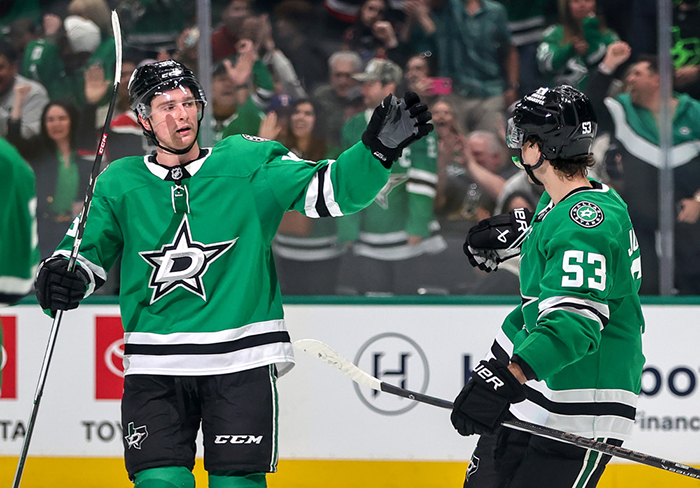As we approach the start of the Stanley Cup Final, a re-match of last year’s contestants, there is one thing a bit different on both teams: they each have a villain with an impeccable matching reputation. They, of course, would be Corey Perry and Brad Marchand. Perry is not new to the finals this year, having been with Edmonton last year, but Marchand is returning to his former stomping grounds and is sure to relish in a chance to hoist Lord Stanley’s mug again at this late stage in his career.
Aside from those two players, perhaps Bennett and Kane follow close second for dubious reputations. With a Tkachuk in the mix, does Florida win the reputation battle, or can Edmonton catch up? While the players listed above are likely seen earning their reputations for their play and behaviour, a reputation is earned in other ways too. I have often wondered who has the worst reputation but not earned for being a dirty, cheap, or difficult player?
If you consider all ways to earn a reputation, there are more than a few players in the NHL who have one and some of them have likely done very little to earn them, or inversely, not done enough to convince anyone it was underserved. Probably one of the most famous players of this type would be Eric Lindros, a behemoth of a man at an early age who was guaranteed to be a superstar but had more baggage than a cruise ship by the time he even entered the league. Another player from the past who could fit this kind of category might be Paul Kariya. Principled to the extreme and a tough contract negotiator, Kariya had both friends and enemies at many levels across his time in the NHL.
Looking around the NHL, are there any current players who carry that sort of weight and might with their reputations? Patrick Laine comes to mind as a player who, early on, created what some might call a ‘reputation of entitlement’ with his desire to leave Winnipeg for more opportunity. Would another former Jets player in Jacob Trouba, fit the description, too, given his desire to leave and find an opportunity for his wife? Combine that with his style of play, and does he become someone who has ‘a reputation’?
While the aforementioned players all have earned certain reputations, have they hurt their brands? That is the pinnacle, and to ascend to that pinnacle, a player must both be talented and perhaps needy. Again, I will point to Lindros, a player who was vicious on the ice but also viciously maligned off the ice, as an example of peak reputation. In that class, I only see two players currently in the NHL who come close, and they are Mitch Marner and Elias Pettersson.
Marner has somehow managed to be so loyal to the club he loved as a kid and dreamed of playing for, that he is being run out of town. His brand is in shatters given the way he is perceived in the media and across social media and fan sites, despite having one of his best seasons, but followed by another postseason of falling short. Is he the problem for the Leafs, or has he been the focal point for Leafs’ fans’ anguish and discontent? The question to ponder would be this: should Marner play for another team next year, and the same result for that team happen as it did for the Leafs this year, would Leafs fans be happy at the outcome, or angry at Marner still, or both?
In Vancouver, where nothing is sane, ever, Elia Pettersson remains a magnet for the focus of both former teammates and fans. In what looked to be a breakout season two years ago and a dominating Canucks squad last year despite a generational PDO run, this season was a 180 degree turn for team and player. There were more rumours about Pettersson and former teammate JT Miller than there were about the inept ownership problems. Eventually, a trade was made (forced?), and Pettersson became the winner. The play on the ice looked disinterested and timid and even the most optimistic Canucks fans began to sour on their star player. Did he even want to be in Vancouver turned to ‘do we even want him in Vancouver anymore?’ and that took over the narrative of the season as head coach Rick Tocchet even took the opportunity to jump when given the chance.
With a hefty contract in place, moving Pettersson might be as difficult and painful as watching Marner leave for nothing in Toronto, should that happen. Together, the two nearly flank the hockey-mad country with reputations that engulf talk shows, podcasts, and forums. The question becomes whose reputation is worse but deserved between the two? Sorry Leafs fans, you come up short again. While Marner may not be part of the eventual winning formula in Toronto, he could be back. Pettersson may not have only got his teammate traded but he also may get himself moved too as the Canucks look to find yet another direction and foundation to build on going 14 seasons since back to back President’s Cup trophies. Perhaps Pettersson has benefited from Howard Ballard-era Leafs ownership ineptitude in his reputation development. If so that means the Leafs have that going for them over Vancouver and that is something to be proud about.



